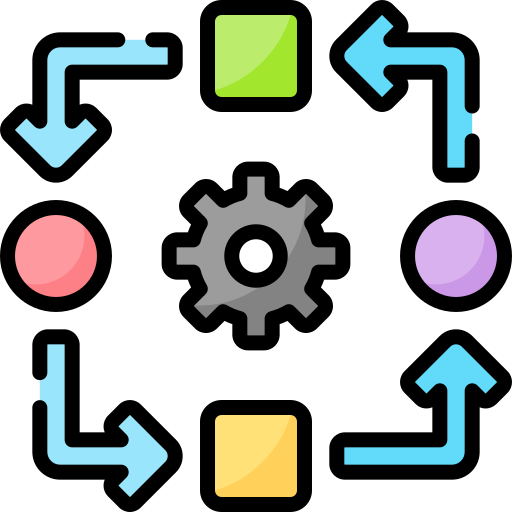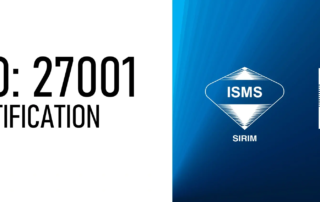Our Data Collection Services are designed to empower organizations with the data they need to thrive in today’s dynamic landscape. There are many different types of data and forms of data collection. The most appropriate method depends on the type of data you need and your goals. At CCCI, we offer a full range of services for data collection to help you with every step of your project.
What is Data Collection?
Data collection is the process of obtaining data from various sources and then organizing, analyzing, and cleaning them. For businesses, it helps you understand your target audience, their needs, and their behavior. Data collection is a critical step in any research project. Getting reliable data collection services is essential to ensuring your success.
The Benefits of Professional Data Collection
There is a lot of data out there, and trying to sift through it all can be overwhelming. But why do you need them for your business?
You need reliable data to run your business effectively. But collecting data is only half the battle – you also need to ensure that the information you collect is accurate. Data entry mistakes can easily happen, and they can have a significant impact on your bottom line. That is why it is important to partner with a reputable data collection company like CCCI!
Data Collection Process

Data collection is a crucial step. And when it is done correctly, it can have a big influence on your business.
Here are the four main steps of data collection:
Planning Data Collection:
Collecting Data:
Organizing, Annotating, Improving the Data:
Data Analysis and Decision-Making:
Our Data Collection Services Include:
Audio Data Collection:
We collect audio data from various sources, such as (mainly) bespoke individual, pair, or group recordings, phone calls, focus groups, podcasts, videos, interviews, etc. Audio data offers a window into people’s thoughts and emotions, making it invaluable for research.
Speech to Text Transcription:
Our cutting-edge speech-to-text transcription services are tailored to meet your needs. We employ various automatic speech recognition (ASR) technology to transcribe audio data accurately if necessary. Our skilled human transcribers verify the transcript for precision, ensuring you receive high-quality results. We can also manually transcribe your speech data, ensuring quality through human touch from the beginning to the end.
Multimedia Data Annotation:
CCCI provides comprehensive multimedia data annotation services, covering audio, video, and text data. Our expert annotators meticulously label your data based on your specific requirements, streamlining your research process.
Text annotation involves labeling text data to enhance its accessibility and usability. This service is utilized for diverse applications, such as sentiment analysis, topic modeling, and named entity recognition.
Our audio annotation services cater to various needs, including speech recognition, speaker identification, and emotion detection.
Image annotation is essential for tasks like object detection, image classification, and facial recognition.
Our video annotation services support object detection, behavior recognition, and event detection.
Why Choose CCCI for Data Collection Services?
CCCI is an ideal choice for your multilingual data collection needs, backed by over a decade of experience and proficiency in more than 30 language pairs, including Japanese, Russian, English, French, Italian, German, Indonesian, Malaysian, Filipino, and many more.
When working with us, we guarantee:

Commitment to Excellence
CCCI is committed to delivering the highest quality services in data collection. Your success is our priority.

Adaptability
Whichever platform you would like the data collection or data improvement process to be performed, CCCI can adhere to it. Our years of experience with clients from all over the globe has made us adept to various tools and concepts as well as helped us develop flexibility and quick and critical thinking skills.

Tailored
Solutions
We offer a range of services that can be customized to meet your specific requirements, ensuring you receive the best data collection solutions tailored to your needs.

Extensive
Industry
Experience
CCCI has a proven track record in providing data collection services across diverse sectors, including government projects, healthcare, finance, retail, and more.

Multilingual Expertise
What separates CCCI from other data collection companies is its language flexibility. With over 10 years in the localization industry, we incorporate our linguistic expertise into our data collection services so that our clients and partners have a wider set of language and locale options, whether for speech data collection, photo collection, video collection, and other types of media.

Trustworthy Outsourcing Partner
Data collection services outsourcing requires trust, and CCCI is a company you can rely on for your data collection needs. We understand the critical importance of data to your business.
Experience the difference with CCCI’s data collection expertise.
Contact us today to explore how our services can elevate your business insights and decision-making processes.
Get in Touch
Tell us about your project
ideas or just say hello.
FAQS ABOUT DATA COLLECTION SERVICES
At CCCI, we collect the data by recording conversations and commands in different languages. We make sure that we only use our trusted tools in this process.
Collected data helps machines learn human-like behaviors in order to achieve artificial intelligence. Artificial Intelligence (AI) is a technology that makes people’s lives more convenient.
Speech recognition analyzes the delivery of speech patterns using Natural Language Processing (NLP). It studies different speech patterns to recognize and process human voice, speech and commands. Speech recognition is used when commanding smart speakers to search or find specific information on the internet.
The most common source of data for audio collection is recording several audio samples from human speech and voice.
With our team of expert linguists, we transcribe audio to text in different languages using our most trusted tools. We check its quality through our quality assurance processes before submitting it to our clients.
We use Zoom when recording the audio data. We then transcribe the audio data using Google Voice Typing Tool. We then proofread the transcription to polish the grammar and context of the audio data.
We provide audio and speech data collection in up to 30 European and Asian languages such as English, Japanese, Russian, Spanish and many more!
We offer scripted audio and speech data collection, scenario-based audio and speech data collection, as well as conversational audio and speech data collection.
At CCCI, our process is simple. We record the audio based on what our clients request. We then check the quality of the recordings before transcribing them. We do this in up to 30 different European and Asian languages.
Data collection is the process of obtaining data from various sources and then organizing, analyzing, and cleaning them. Contact us for data collection services, including audio and speech collection.
For businesses, data collection helps you understand your target audience, their needs, and their behavior. It can guide you in making better decisions about your marketing, product development, and sales strategies.
CCC International provides data collection services such as audio and speech data collection, speech to text transcription and timing, and multimedia data annotation.
The data collection process begins with a plan. You need to determine what type of data you need and why you need it. Once you have a plan, the next step is to collect the data. You can do this through surveys, interviews, focus groups, or observation.
Data collection services outsourcing can be tricky if you do not know where to look. CCCI is a data collection company that has all your data collection solutions. We are committed to providing you with the best possible services.
Data collection is a critical step in any research project. Getting reliable data collection services is essential to ensuring your success. We offer audio and speech data collection services for machine learning, NLP, and research purposes.
CCC International has been providing data collection services for various industries, including healthcare, finance, retail, and more! Contact us for data collection services.
Audio data collection is the process of gathering audio and speech data to create audio datasets. The audio data sets are then used for several purposes such as machine learning for speech recognition, speech analytics and artificial intelligence.
CCCI offers multimedia data annotation services to help you label audio, video, and text data. Our team of expert annotators will label your data according to your specifications so that you can focus on your research.
Our speech-to-text transcription services are designed to help you transcribe audio data quickly and accurately, including the timing and speaker identification.
CCC International provides accurate speech to text transcription and timing services. Contact us if you are in need of these services.
The technology to transcribe voice to text has come a long way in recent years. Speech recognition is a crucial part of transcription services, and there are two main types of this technology: speaker-dependent speech recognition, and speaker-independent speech recognition.
Speech to text transcription is the process of converting spoken words into written text. This can be done using several different methods, but the most common is to use a computer program to recognize the spoken words and convert them into text.
Automated speech to text transcription includes legal, medical, business, and educational sectors. The technology is helpful for business professionals who need to transcribe audio recordings of meetings, or for companies developing AI services which need speech data in both audio and text format.
The main tools we use to transcribe speech to text are Aegisub and Subtitle Edit, providing the most common formats in our outputs: ass or ssa and srt. Our team is also flexible and adaptable for clients who trust other software and want other formats. Contact us for converting speech to text.
With a transcription service, you can get the transcript in a shorter time. Another benefit of transcription services is that they can be more accurate. For having transcription services contact us.
One of the most critical aspects of transcription is timing. When you’re transcribing a recording, you need to be able to identify when each person is speaking. At CCCI, we use the latest technology to provide accurate transcriptions that are timed to match the audio recording.
We not only guarantee an accurate transcription of your audio or video file but also ensure that the output will be timed to match the recording! CCCI understands the importance of audio to text conversion, even in small and medium-sized businesses.
After preparing the data, it’s time to start labeling and annotation. This is the process of labeling or tagging the data. If you’re annotating an image, you may need to label the objects in the image, etc.
The types of data annotation are text annotation, image annotation, video annotation, audio annotation. For having these services, contact us.
CCC International is a professional multimedia data annotation company, providing text annotation, image annotation, video annotation, and audio annotation services. Contact us for multimedia data annotation.
To get the most precise and valuable data, you need to be able to label or tag it properly. Data annotation is the key to unlocking the value of your data. It allows you to structure and organize your data in a way that makes it more accessible and useful.
With data annotation you will be able to improve the accuracy of your data, make your data more searchable and accessible, share your data with others, get more insights, and more.
Data annotation consists of several steps, which include data collection, annotation and labeling, and deployment or production.
Text annotation is the process of labeling text data for easier analysis. This can be done for various purposes, such as sentiment analysis, topic modeling, and named entity recognition. Contact us for text annotation.
Image annotation is when we add labels or tags to images. It is helpful for object detection, image classification, and facial recognition. Contact us for image annotation.
Video annotation is the adding of labels or tags to video data, to improve the usefulness of this data. It can be used for object detection, behavior recognition, and event detection. Contact us for video annotation.
Audio annotation is the process of adding labels or tags to audio data. It can be done for different purposes, such as speech recognition, speaker identification, and emotion detection. Contact us for audio annotation.
RELATED BLOGS
Comic Book to Webtoon Conversion
Key Takeaways: Comic books can be traced back to [...]
ISO 27001 Certification
We are excited to announce that CCC International has [...]
Top 5 Languages for Manga Localization in 2024
Effective localization can turn a niche manga into a [...]






